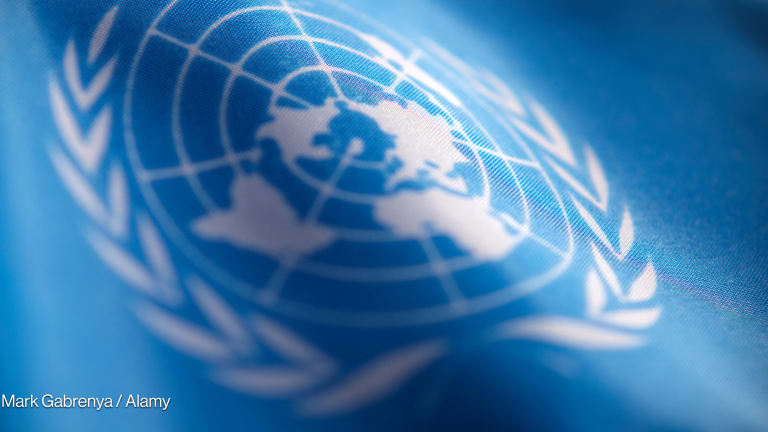
The youngest member of the U.N. Security Council has a humanitarian plan for Syria: one aimed at ensuring the security of medical personnel and facilities in the conflict-torn country.
Gary Quinlan, Australia’s permanent representative to the United Nations, will present the blueprint, which foreign affairs minister Bob Carr described as “minimalist,” before the council on Friday (Jan. 18). Details have yet to be fleshed out, but Carr said it could be implemented by a “neutral third party” such as a nongovernmental organization.
“Australia is not naive enough to think that we alone can achieve UNSC action to deliver a ceasefire in Syria,” Carr said Thursday. “But we believe we can at least persuade others with influence in that country to press for measures allowing doctors and other medical workers to do their job.”
U.S. Secretary of State Hillary Clinton, U.N.-Arab League Joint Special Envoy to Syria Lakdar Brahimi and several European and Arab foreign ministers have expressed their support for the plan, according to Carr. The government will be seeking additional support for it a Jan. 30 pledging conference in Kuwait.
The plan comes after the Syrian government gave the World Food Program permission to partner with more local organizations - a move that does not guarantee the U.N. program’s access to hard-to-reach areas. The ongoing conflict between the government and rebels continues to pose a challenge to WFP’s plans to expand its operations inside the country.
Last week, the government provided WFP an additional list of local organizations the agency can add to its pool of partners in Syria. Out of the 110 organizations, WFP has identified 44 it can work with to help the agency address some of the logistical problems it faces in Syria.
But access will remain elusive, even with this added authorization from the government, WFP Executive Director Ertharin Cousin said Wednesday.
“We are still going to be limited by the ongoing conflict,” she said. “I’m not going to suggest that merely because we will now have more partners, that that will open up space that didn’t exist before because of conflict.”
Attacks on WFP trucks have increased over the last two months. The program is $136 million short in funding to reach its goal of feeding 1.5 million Syrians until June.
Read more:
Read more development aid news online, and subscribe to The Development Newswire to receive top international development headlines from the world’s leading donors, news sources and opinion leaders — emailed to you FREE every business day.








